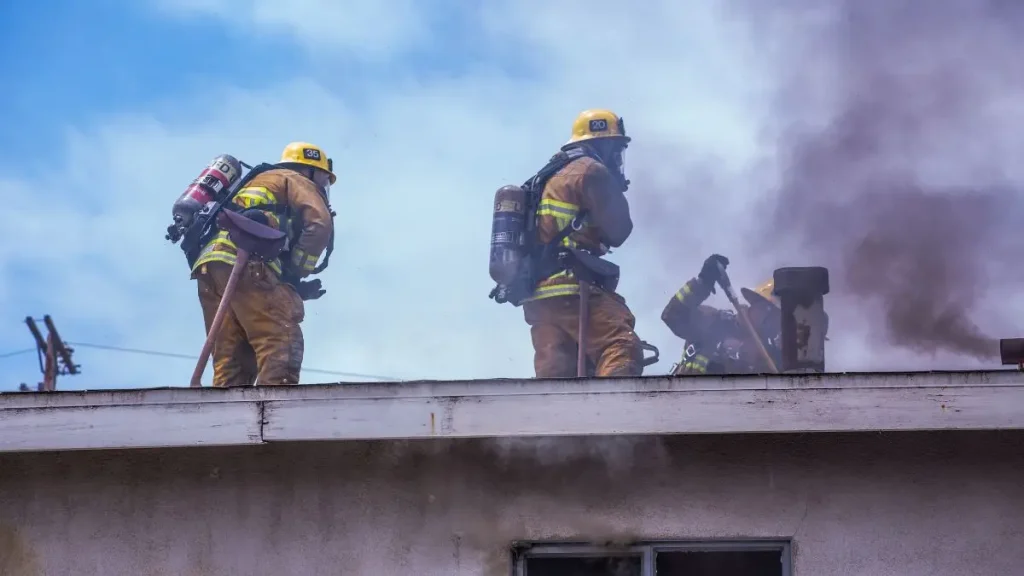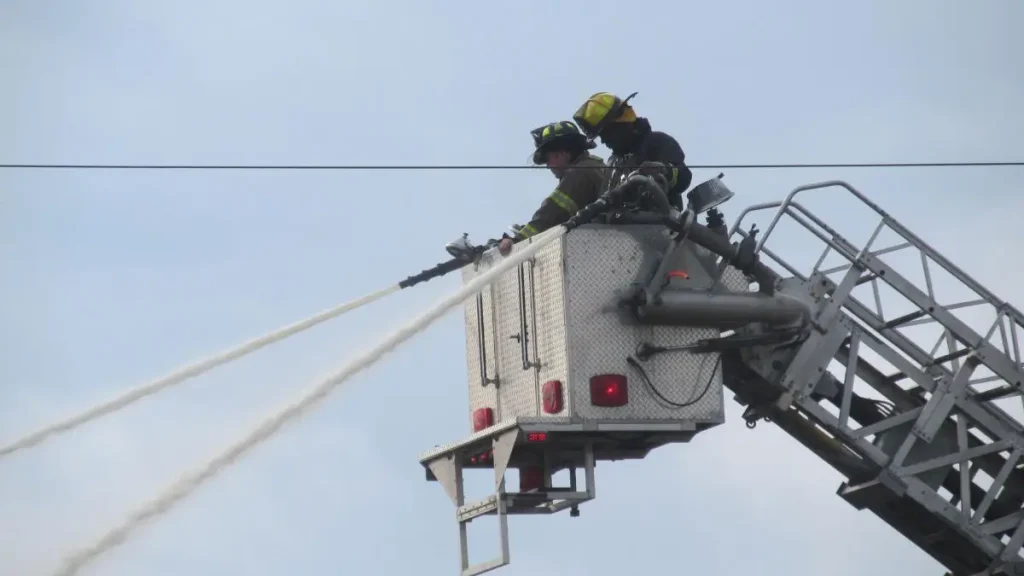Woman Found Dead After Virginia House Fire
I’ve covered enough home fire stories to know they never start with drama — just silence, smoke, and disbelief. This one in Virginia was no different.
Early Tuesday morning, around 8:23 a.m., first responders rushed to a call in the 100 block of Tivis Ridge in Dickenson County. When deputies got there, they found what no one ever wants to find — a woman, 64-year-old Deborah Ann Mullins, dead inside her own home.
The fire itself didn’t level the house. Sheriff Jeremy Fleming said the structure had only minor damage, most of it from smoke, not flames. That’s what struck me — sometimes it isn’t the fire that kills, it’s what you don’t see fast enough.
She was alone. No family nearby to call for help, no one to pull her out. Just smoke filling the air faster than any siren could reach.
Stories like this hit hard because they remind us how fragile the idea of “home” can be. One small spark, one missed alarm, and everything changes in minutes. And yet, every Virginia home fire carries the same hidden message — how easily preventable many of these tragedies are.
If you live alone, or in a quiet neighborhood like Dickenson County, take a moment to think: would anyone know if something went wrong in your home tonight?
How the Fire Unfolded — What We Know So Far

According to the Dickenson County Sheriff’s Office, the call came in at 8:23 a.m., reporting a house fire in the 100 block of Tivis Ridge. Sheriff Jeremy Fleming told WJHL News Channel 11 that deputies and local firefighters responded quickly.
When they arrived, they found 64-year-old Deborah Ann Mullins inside — already gone. She was the only person in the home at the time.
What’s haunting here is that the house didn’t burn down. Sheriff Fleming said most of the damage came from smoke, not flames. That single detail says a lot: sometimes it’s not fire that kills, it’s the air you breathe before help arrives.
Several departments joined forces — Haysi Volunteer Fire Department, Haysi Rescue Squad, Clinchco Fire Department, and Clintwood Fire Department — proof of how tight-knit these small Virginia communities are when crisis hits.
Why Rural Home Fires Can Turn Deadly?
I’ve seen it time and again — rural homes, especially older ones, are quiet until something goes terribly wrong. When you live miles from a main road, response times stretch. By the time help arrives, it’s often too late.
Many Virginia homes were built decades ago, with wiring or heating systems that aren’t up to modern standards. Add aging smoke detectors or none at all, and that’s a dangerous mix.
In single-occupant homes like Mullins’, there’s another risk: no one else is there to call for help. That silence can turn a small incident into a fatal one.
It’s a hard truth, but it’s one we need to face — fire safety in rural areas isn’t just about equipment, it’s about awareness and readiness.
A similar tragedy struck in Massachusetts, where a man and two dogs lost their lives when flames spread faster than anyone could react — read that story here.
The Firefighters’ Response and Community Reactions
Local departments didn’t waste a second. The Haysi Volunteer Fire Department confirmed on Facebook that their team responded alongside crews from Clinchco, Clintwood, and Haysi Rescue.
Volunteer firefighters in towns like these often know the people they’re trying to save. They leave their breakfast tables, their jobs, their families — and they go. That personal connection makes losses like this one hit much harder.
On social media, locals expressed heartbreak and prayers for Mullins’ family. You could feel how deeply one tragedy rippled through a small community.
If you’ve ever lived in a rural county, you know — the fire department isn’t just an emergency service. It’s a lifeline, built on volunteers who answer calls at any hour.
Key Takeaways for Homeowners — Lessons from the Fire
Every home fire tells a story, but the lessons often repeat.
If you’re reading this in your own living room, here’s what I’ve learned from covering incidents like this:
- Check your smoke alarms — once a month. Replace batteries every year.
- Keep exits clear — clutter slows you down when seconds matter.
- Plan an escape route — and practice it, even if you live alone.
- Inspect old wiring and heating systems — aging homes hide small hazards that turn deadly fast.
- Tell someone — if you live alone, share your routine with a neighbor or friend. Sometimes a quick check-in can save a life.
It’s not paranoia. It’s preparation. Deborah Mullins’ story is heartbreaking, but if it makes one person safer tonight, it’s not in vain.
If you like quick, practical fire safety reminders and real home protection updates, there’s a great community sharing these daily on WhatsApp — it’s a quick scroll through insights that actually matter when seconds count.
What This Means for Virginia Residents?

Fires like this one remind us that safety gaps still exist — especially in smaller towns across Virginia.
State data shows that most fatal home fires in Virginia happen in homes without working smoke alarms or in rural areas where emergency response takes longer.
That’s why counties and fire departments across the state are pushing awareness drives — offering free smoke detectors, safety workshops, and community training sessions.
If you’re a Virginia homeowner, don’t wait for the next campaign or tragedy. Reach out to your local volunteer fire department — they’ll often install alarms or inspect homes for free. It’s one of the simplest ways to protect your family and honor lives like Deborah’s.
If you live in Virginia, have you checked your smoke alarms this year? Go ahead — test them tonight. And if they’re working, tag your local fire department online and thank them for showing up when it matters most.
In Glastonbury, a family learned this firsthand after losing their home but surviving thanks to quick safety actions — read how they rebuilt and what they learned.
Resources for Fire Safety and Community Support
In tragedies like this, people often want to help but don’t know where to start. Sometimes, the best way to honor a life lost is by protecting another.
If you live in Virginia, here are a few trusted places that can guide you:
- Virginia State Fire Marshal’s Office — offers free resources on home fire safety, alarm installation tips, and inspection programs.
- Red Cross Virginia Region — provides temporary shelter and disaster recovery aid for victims of house fires.
- Local Volunteer Fire Departments — many, including those in Dickenson County, help install smoke detectors for residents who can’t afford them.
- NFPA (National Fire Protection Association) — has practical checklists on how to reduce fire hazards and prepare family escape plans.
And if you’re part of a local community group or church, consider organizing a “home safety weekend.” Sometimes a single reminder — a quick knock on a neighbor’s door — can make a life-saving difference.
We saw that same heartbreak in Waukesha, where a mother and daughter were found after a devastating house fire — see what the community did in their memory.
What’s Next — Investigation and Local Follow-Up
Right now, the Dickenson County Sheriff’s Office and state fire investigators are still looking into the cause of the fire. Officials haven’t confirmed what started it — and often, in cases like these, that answer takes time.
But while investigators work, the community grieves. Neighbors and friends of Deborah Ann Mullins have shared condolences and memories online, reflecting how deeply she was known and loved in this quiet Virginia town.
What happens next isn’t just about finding a cause — it’s about learning something from it. Whether it turns out to be electrical, accidental, or undetermined, every case adds to the bigger picture of fire safety in small, aging homes across Virginia.
If there’s one thing that stands out, it’s that prevention starts long before a fire truck ever rolls out.
Final Thoughts — Why This Should Matter to Every Homeowner
When you read about a fire like this, it’s easy to think, “That’s awful — but it wouldn’t happen to me.”
I’ve thought that too. Then I’ve seen families standing barefoot on their driveways, watching everything they owned go up in smoke.
Virginia home fires don’t always make national headlines. But they happen — quietly, suddenly, and often for reasons we could’ve prevented.
One missing alarm, one overloaded outlet, one forgotten candle — that’s all it takes.
So before you close this article, do one small thing: walk through your house. Check your alarms. Look at that space heater. Clear that outlet.
Because stories like this aren’t just about tragedy — they’re about reminders. The kind that save lives when we actually listen.
Have you ever experienced a home fire scare or near-miss? Share your story or tip in the comments — your experience might be the reason someone else stays safe tonight.
If you care about home safety stories that teach real lessons, explore more fire reports and prevention insights in our Home Incidents section— where we cover how families recover, rebuild, and protect what matters most.
Disclaimer: All information in this article is based on publicly available reports and official statements at the time of writing. Details about the incident or investigation may change as new updates emerge. This article is intended for awareness and educational purposes, not as an official legal or investigative source.


